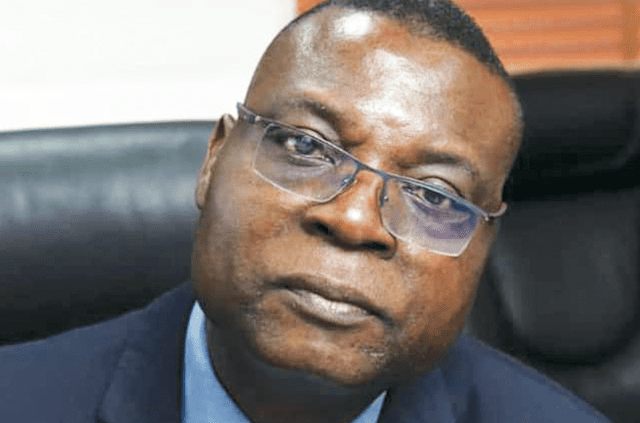Not a good story for telecoms as year ends

The government is in dire straits and needs more money, so they ask the tax men to go after everybody, including the mobile operators, especially with the kindergarten reasoning that the operators have too much money. The regulator is part of government and does not have the gravitas to tell the government that too much tax can kill the industry. While the ministry is spinning one policy after the other, some so totally irrelevant if not oppressive to the industry
I HAVE had the unenviable opportunity of living in two states and the Federal Capital Territory in the past three months. All the time, my phone is my most prized item because it connects me to my base and my family. It is really cool to be able to reach out and be reached at any time, but one can confess here, very painfully, that it has been a drag, so frustrating that you try to confirm to yourself that GSM operations in Nigeria have climbed over two decades.
That is the real story. So when the calls refuse to connect, when the calls drop when they connect at all, everything is attributed to network failure or network congestion which ought not to have been after two decades. But that is where we are in the country; instead of constant and gradual improvement, we witness debilitating decline and begin to make promises for a better tomorrow that may never come.
What is the Nigerian Communications Commission (NCC) doing, they ask me. Things have never been this bad, they conclude.
Things have been worse, if you permit me to aggravate your frustrations. But that was pre-2000 when the nation hardly had phones. But the phones came; instead of building on recorded and globally recognised progress, things have progressed more in error, further exacerbated by unstable economy and even more unpredictable regulation and policies.
The signals are not good in most parts of Abuja, in significant parts of Delta State and in Edo State. Who should be doing something, they ask. Simple answer. It is the government; it’s the regulator and the operators forming the third leg of the significant trio. The subscribers are just there waiting to receive good services which they have either paid for (pre-paid) or willing to pay for (post paid). But the case is much more complex, far beyond what is visible for the eyes to see or even just roll up into a puzzle, in the realm of incomprehensibility.
Look at it this way. The government is in dire straits and needs more money, so they ask the tax men to go after everybody, including the mobile operators, especially with the kindergarten reasoning that the operators have too much money. The regulator is part of government and does not have the gravitas to tell the government that too much tax can kill the industry. While the ministry is spinning one policy after the other, some so totally irrelevant if not oppressive to the industry.
So, who should be doing something. As the regulator, the NCC should be accountable to the nation on what happens in the industry. Unfortunately, after a brilliant start over two decades ago, the regulator has found itself struggling for a place in the ladder of importance.
In trying to give a respectable picture of the indsutry it regulates, the NCC said somewhere, “The industry has been a driving force in the nation’s economic transformation, contributing significantly to GDP growth, job creation, and innovation across multiple sectors. By enhancing connectivity, the industry has enabled businesses, from agriculture to finance, to operate more efficiently, reach wider markets, and improve productivity.”
Something sweet to say anyway. But at the moment, the NCC is struggling for reinvention in order to get regulation going. Instead of quality of service with data from the operators which should meet the targets set by the regulator, the regulator has introduced a new approach which they call Consumer Experience, which has more to do with “a composite index that refelects how consumers feel about the services they are receiving from telecom operators.”
From the look of things, so much is expected from the operators but they too have their bucket of complaints. They complain of too much pressure from the regulatory environment, including some kinds of financial demands and other pressures that make doing good business in Nigeria a mirage.
Even before this concept of Consumer Experience was hatched, the operators, since 2023, already complained of myriad of macroeconomic challenges that were making life difficult for them. And of course that will rubbish whatever euphoria that should have been linked with whatever experience the consumer should have. They include: the upward trajectory in the inflation rate from 11.98% in 2019 to 21.34% in 2022 and currently 27.33% in 2023; rapid devaluation of the Naira eviidenced by the recent upward rate of 68.5% from N461/$ in December 2022 to N777/$ as at the end of September 2023; and sustained rise in energy prices with diesel currently retailing at an average price of N1,004/litre from N250/litre in January 2022.
These were 2022/23 figures. The story has since changed, confounding the operators even more. Currently, the Naira is valued at N1656 to 1 US Dollar; inflation stands at 34.5%, while a litre of diesel sells for N1,200. These figures fly in the face of whatever the industry, including MTN, Airtel, Glo, Etisalat and indeed, ATCON, had complained about.
The operators also observed then that despite these adverse econmic headwinds, the telecommunications industry remains the only sector that has yet to effect any general tariff increase for its services in the last 5 years due to regulatory and political restrictions limiting the MNOs’ ability to react to the increased cost of doing business.
They equally complained of bureaucracy and increasing over regulation of the industry which didn’t use to be the story of the sector. But they can observe changes that are adverse and the industry is reeling in pain. The Ministry, on the other hand, has been more involved in promoting new policies when not instigating new Bills at level of the parastatals.
The consequential effect is that the indsutry is grappling with lots of problems which coalesce into quality of service that is far below the acceptable threshold. It is pervasive and needs to be confronted frontally.
As the year fades, it is pertinent to observe that the regulator needs to take more concerted measures to address the problems facing the telecomunications industry. This writer is aware of the Commission’s encouragement to states to accept its version of right of way (RoW) which compels operators to roll out service across the states of the federation at zero cost. The ripple effects of such move can only be interpreted by the plethora of jobs that will be created in such states and the development that can follow.
For the time being, telecom services across states are very poor. It’s such a dreary way to end the year.
*Aihe writes from Abuja






